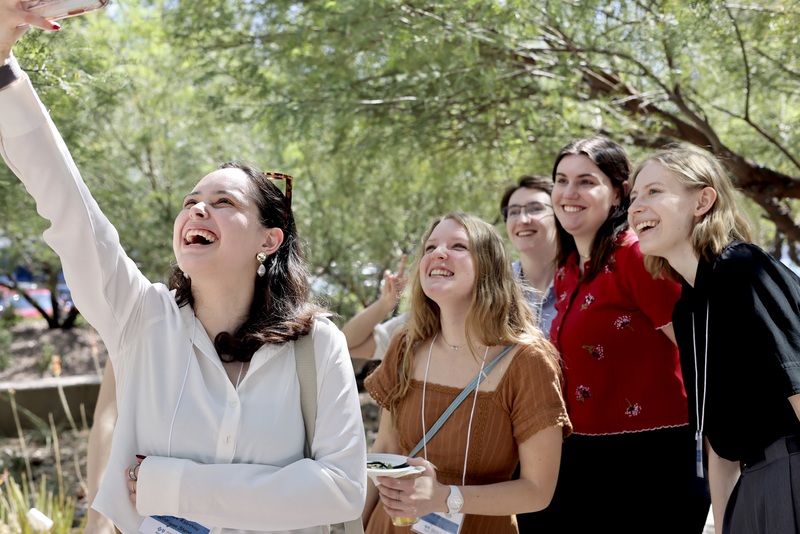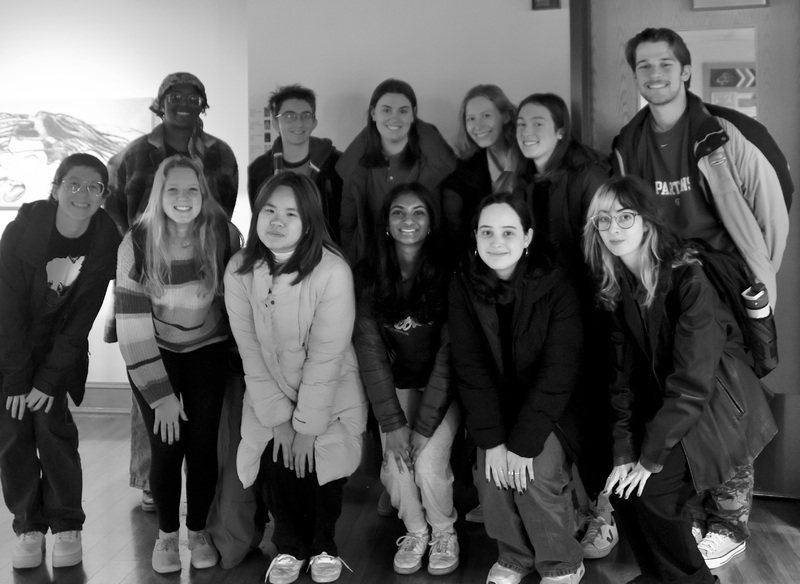About Us
On March 11, 2020, MIchigan State University announced that it was moving as many classes to remote participation as possible. This date marked the arrival of COVID-19 in Michigan and the beginning of remote education, lockdowns, and a transformation of human experience. During this time, health, wellbeing, and disability moved to the foreground of consideration. The COVID-19 pandemic fundamentally changed how people interacted with one another and how they behaved.
It was during this time that participants at Michigan State University and elsewhere began to track how people navigated the experience of sheltering in place, limiting contact, and mitigating the stress of a transformed world. A cursory glance at social media at the time showed some examples of ways people were using the newfound time not spent on in-person gatherings or commuting: fresh attempts at baking, viral dance trends, and photographs of landscapes devoid of people and littered with disposable masks.
Dr. Natalie Phillips and her collaborators conceived of Creativity in the Time of COVID-19 after observing students and others coping with the pandemic using creativity. In an attempt to document the creative expressions and outlets used by those disproportionately impacted by the pandemic, Phillips, sharing leadership with Dr. Julian Chambliss, and with the help of brilliant co-authors Soohyun Cho and Tushya Mehta , wrote a three million dollar Mellon Foundation Just Futures grant proposal. Less than a year later, January 2021 marked the launch of the Creativity in the Time of COVID-19 (CTC-19) project with the release of a detailed questionnaire seeking any form of creative expression that people turned to during the pandemic. It’s the examples that we received that drive this project. By circulating these creative expressions and housing them in a digital archive, it is our mission to highlight the ways that creative expression (sometimes simplified as ‘art’) serves as a tool for combating inequality.
The Digital Humanities and Literary Cognition Lab ( DHLC ) in Michigan State University’s Department of English created an open call for submissions to gather an intersectional collection of creative outputs, coping strategies, and human reactions created during the pandemic. We worked with accessibility consultants–including HIVES, DisArt, Clovernook– and a range of creators to adapt an inclusive experience within the archive and exhibitions of selected works. All too often, access is left as an afterthought for academic projects, art exhibitions, and digital archives. Creativity in the Time of COVID-19 worked to integrate access concerns from the outset in order to host events and create artifacts that would be as-accessible-as-possible.
This website serves as the digital archive of the collection of submissions and partnered presentations. It hosts crowd-sourced creative expressions, a research portal to access submissions, and records of the commissioned art and exhibitions that are part of our mission to create a diverse, accessible repository of creative expressions from the pandemic. These records include intersectional public and academic events with our partners, including:
- The US Air Force Academy at Colorado springs, headed by Lt. Col. Lopez, PhD.
- Washington University in St. Louis, headed by Drs. Pearson and Sarafinovska.
- The University of Buffalo, headed by Dr. Cody Mejeur and the Amatryx Lab and Studio
- Murals on the Market and Norwest Gallery in Detroit, MI
- Countway Library in Boston, MA with Marked by Covid’s Kristin Urquiza as well as Harvard University’s Sara Press, Yasmina Kamal, and Meredith Solomon
- Michigan State University’s LookOut Gallery and SCENE Metrospace East Lansing, MI
These curated events focused on BIPOC/API, neurodivergence, disability, LGBTQIA+, aging, and the medical humanities. Among the records kept here are interviews with a spectrum of contributors for first hand accounts of the pandemic and creative coping.
As a project that focuses on the hard work of students, graduate and undergraduate alike, this work encouraged MSU student groups to present in Long Beach, Chicago, Phoenix, Washington DC, and Sheffield (UK). Over the lifetime of this grant, we have been able to amplify the experiences and expressions of those disproportionately impacted by the pandemic, circulate their work in community spaces, academic conferences, and interactive exhibitions and workshops.
As you engage with this archive, learn about the team of specialists we brought together for this yearslong mission, and follow the work of our collaborators, we invite you to reflect on your own experience of the pandemic and consider how your approach to existence has changed since 2020.


